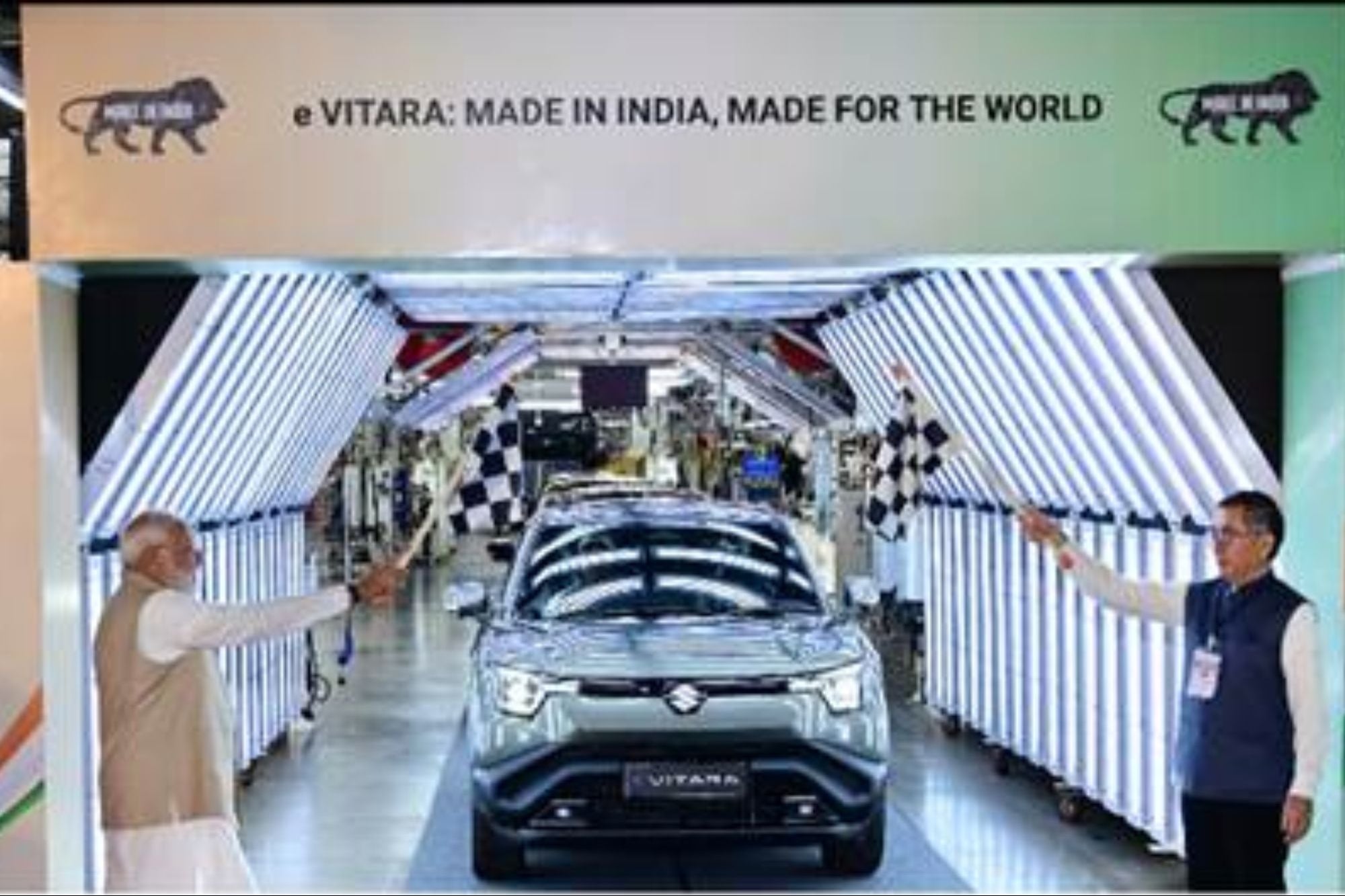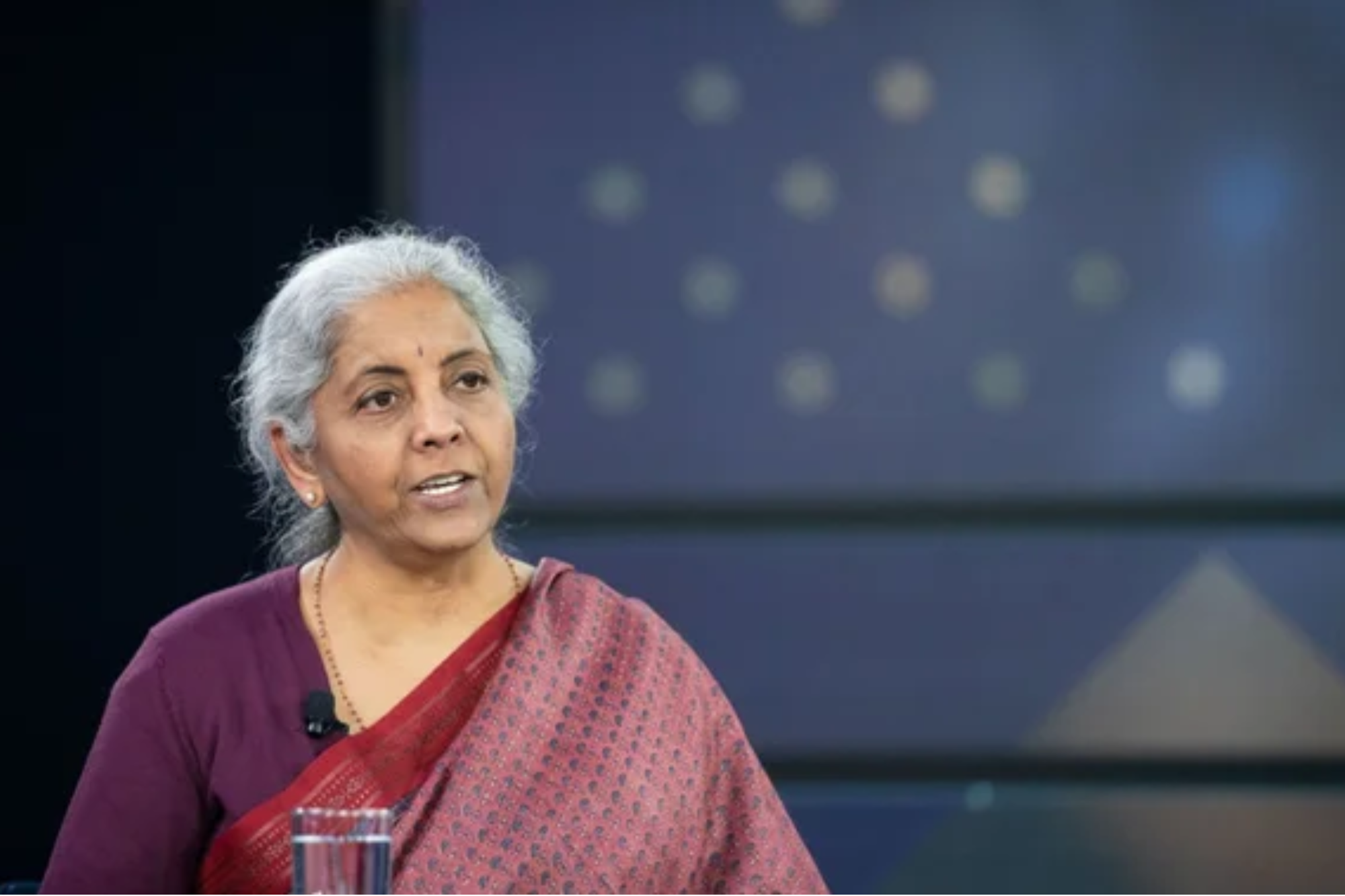Maruti's Late Entry Into EV, a Strategic Move? Experts Decode Maruti Suzuki's entry into the EV space with e-Vitara is deliberately timed as the Indian EV market becomes increasingly skewed towards INR 20 lakh and above SUVs segment
Opinions expressed by Entrepreneur contributors are their own.
You're reading Entrepreneur India, an international franchise of Entrepreneur Media.

The Indian electric vehicles (EVs) segment is small but growing faster in 2025. Early this week, Prime Minister Narendra Modi flagged off the first Suzuki e-Vitara, Maruti's global battery electric vehicle (BEV), to be rolled off the production line in Gujarat. The company aims to export to 100 countries from India, including in Europe and Japan. Maruti's entry comes after competitors such as Tata, Hyundai, Mahindra, and MG have carved an early lead in the Indian EV market. Is its late entry a strategic move?
Maruti Suzuki's entry into the EV space with e-Vitara is deliberately timed as the Indian EV market becomes increasingly skewed towards INR 20 lakh and above SUVs. Reports suggest e-Vitara will be priced at INR 20 lakh segment.
Advanced tech integration, premium user experience, long-range that counter range anxiety, and reliable battery warranties build consumer confidence. "The premium EV utility vehicle segment is expanding faster, driven by new vehicle launches. Maruti plans to establish itself domestically by offering competitive range, robust aftersales support, and feature-rich models that appeal to tech-savvy buyers, while also leveraging its vast dealer and service network to reach beyond metros into emerging EV markets," said Ravi G Bhatia, president and director, JATO Dynamics India.
Maruti's capability to achieve economies of scale and pricing strategy, robust dealer network and service ecosystem gives it an edge over newer EV entrants. Its biggest strength lies in brand trust, nationwide distribution, and aftersales reach. Additionally, its first-ever Lithium-ion battery pack production unit in the country, further fuels its EV ambition. Suzuki plans to manufacture batteries for the Grand Vitara locally. While the Maruti e Vitara is an all-electric SUV, Maruti Grand Vitara is a hybrid/petrol-powered SUV. Partnerships, such as the Toshiba-Denso-Suzuki JV for local battery electrode production, further enhance cost optimization. "Combined with Toyota's global EV expertise, Maruti can deliver reliable, affordable vehicles tailored to Indian conditions," Bhatia added.
Over the years, when other OEMs were launching EVs, Maruti was quietly building an infrastructure ecosystem, required to sustain growth in the market. Maruti is deliberately late to the EV market – initially letting the teething troubles resolve themselves – and enter at a time when the market is sizable enough. "Maruti Suzuki is strong in designing practical vehicles at competitive prices. By investing heavily in the Gujarat factory as a global hub, it will gain economies of scale. Maruti also has the trust and dealer network. These advantages will help it be a strong player in the long run. It is great to see healthy competition in the EV space with both Indian and foreign players investing meaningfully in our geography," said Anurag Singh, advisor, Primus Partners.
However, Maruti will have to face the challenges of the EV industry - green electricity, charging stations, consumer acceptance, supply chain, changes in trade due to geopolitical tension – It will also have to catch up in technology and win market share. Differentiating itself from early movers like Tata and MG, who already dominate EV mindshare, will also be a key test.
Supply side challenges remain significant as China controls over 90 percent of the global processing capacity for essential material. However, EV penetration in India is just 3.2 per cent in H1 2025, according to JATO Dynamics India. The real growth curve is yet to begin. "By aligning its strategy to premium SUVs, competitive pricing, and long-range models, Maruti can expand the overall market rather than just compete for a slice. It is expected to scale in the next three years with a strong EV roadmap to launch four new modes by 2030. Its 'make-in-India, make-for-the-world' approach, with India as the e-Vitara hub, ensures it remains a serious contender despite its late start," Bhatia explained.
Toshihiro Suzuki, representative director and president, Suzuki Motor Corporation, has stated that the Make in India and Aatmanirbhar Bharat initiatives have been inspiring Suzuki to invest in India. "These milestones are also a testimony to the enduring Indo-Japanese partnership, built on mutual trust and a shared vision for progress and a carbon neutral future. We will provide all products and technologies that will reduce oil consumption and imports and carbon emissions like battery electric vehicles, strong hybrid electric vehicles and vehicles powered by natural gas and biofuels," Suzuki shared during the inauguration.
Manufactured exclusively at Suzuki Motor Gujarat, the first batch of export bound
e-Vitara will be shipped from Pipavav port to the European region, including the United Kingdom, Germany, Norway, France, Denmark, Switzerland, Netherlands, Sweden, Hungary, Iceland, Italy, Austria, and Belgium.










